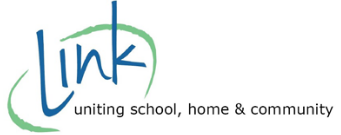Link Education Project has been working with schools in Northeast Ohio for the past 12 years to make connections among new learning, current research, and powerful classroom practices that make a difference for kids. Today, teachers all over Ohio are working hard to learn about literacy instruction based on the science of reading, and we know that additional support is needed to translate that new learning into the life of every classroom. Here are five ways to support schools as they shift literacy practices:
1 – Work with administrators at monthly or quarterly meetings to:
- Learn together and reflect on that new learning
- Highlight science of reading concepts from the principals’ perspective
- Develop clear expectations and priorities for teacher learning and implementation of practices
- Analyze data in a way that provides clarity and direction for instruction
- Share observations and questions about teacher implementation
2 – Work with leadership teams at monthly or quarterly meetings to:
- Support schoolwide implementation of practices and to promote a culture of learning, reflecting, sharing and risk-taking
- Help develop realistic goals, action plans and timelines
- Support working groups as they plan and deliver professional development
- Provide materials to use for school presentations and model lessons
3 – Work with grade level teams at monthly meetings to:
- Reflect on new learning
- Connect new learning to classroom practices
- Share, model and demonstrate routines and strategies
- Provide materials for instruction and interventions
- Share student data and plan for instruction based on the data
4 – Work with teachers and coaches individually to:
- Model instructional practices
- Review data and determine next steps
- Troubleshoot needs and strategies for particular students
- Co-plan and team-teach
- Coach teachers during instruction
5 – Share tools and resources that make implementation of new practices impactful, focused and teacher-friendly. Here are some of our favorites:
- Link Literacy Toolkits – As we work with teams, we build toolkits based on our shared learning. Each toolkit is aligned to the primary literacy domains (phonemic awareness, phonics, fluency, vocabulary, comprehension, and writing). These easy-to-access resources provide teachers with routines and strategies to meet the needs of their students.
- One-Pagers – Big Ideas and Terms from the Science of Reading With all the new learning, sometimes it’s nice to review a topic at-a-glance. We create summaries of the latest research for easy review and quick access. Examples of our one pagers are: What do I Need to Know about Syllables? and What do I Need to Know about Phonics?
- New Learning and Expectations – This tool is used to guide leadership teams through a process of clarifying expectations for teacher learning and implementation of practices over a three-year period.
- District Literacy Plans – While all school districts create plans for the state, some districts feel the need to create an additional brief, working document that clarifies specific action steps and strategies for reaching their literacy goals. This plan is used to guide and focus all literacy leadership meetings.
| “Link is priceless! In a time when tasks keep getting added to our plate, they take things off our plate. They provide strategies that are easy to implement, prepare materials for us, and look into questions we have and follow up with answers. I truly think they play a large factor in the success our team and students have had.” – Bedford Teacher |






Leave a Reply